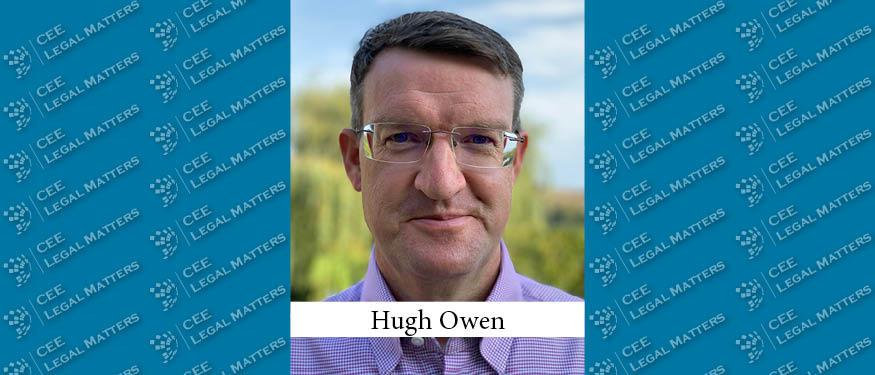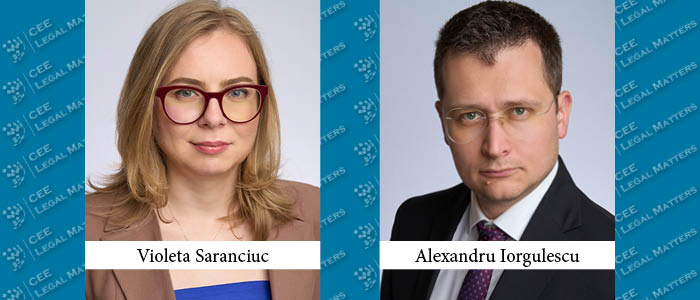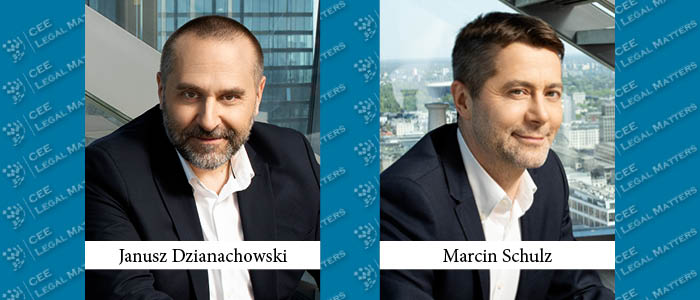CEE Legal Matters sat down with Go2 Law owner Hugh Owen to talk about career choices, training others, and his newest project, Go2 Law Training.
CEELM: Why did you decide to leave Allen & Overy four years ago?
Hugh: Allen & Overy is a great firm. I had an amazing experience working there for over 23 years and I met many wonderful colleagues along the way. In fact, we have continued to co-operate on a number of projects right up till the present day. However, working for Allen & Overy, for me personally, was also a high-intensity job that required a lot of traveling. Every time a client says, for instance – can you be in Amsterdam tomorrow morning? – that causes a disruption in your work, in your family life, and so on.
My goal was to continue doing interesting deals, but to have more time for my family. Taking off on my own four years ago and establishing Go2 Law seemed like the way to achieve that goal. So, even though this decision was a big risk, I decided to go through with it. My leaving was very amicable and I remain close friends with many people at A&O.
CEELM: What have you been focusing on, following your departure from Allen & Overy?
Hugh: I advise on the English law aspects of M&A transactions, but I like to focus on trying to share my 25 years of experience on deals. I am not necessarily chasing after the most prestigious and largest deals (though they are always nice to have). Instead, I want to actually help people who need good, steady, experienced advice. I felt that my expertise would prove invaluable to entrepreneurs and businesspeople who, although experts in their own field, may not be as well-versed in M&A transactions, or other lawyers who just like to have a helping hand in the background. For entrepreneurs, the deals that they are doing may be extremely significant milestones for them, and I like to help them navigate through the process safely.
CEELM: Why did you decide to launch the Go2 Law Training platform?
Hugh: A big part of my work, even during my time at Allen & Overy, has been training other lawyers. I have always enjoyed the enthusiasm of the people I was training, and I love sharing my knowledge and experience with others. Unfortunately, the COVID-19 pandemic shut down that part of my work, so I just continued to focus on deals.
However, a few months into the lockdown, I was inspired by my wife to consider setting up an online training platform. She had decided to move her own (Pilates) business online and it was going well. She thought I could do the same with my training. I learned a lot from her about how something like this could work really well.
CEELM: Could you tell our readers a bit about the format of the courses?
Hugh: We have six courses at the moment – SPA: Clause by Clause, Drafting Skills, Negotiation Skills (SPA Case Study), Negotiation Skills (Soft Skills), Finance for Lawyers, and Presentation Skills. I will be teaching the first three courses, while the remaining three will be taught by former Deloitte Partner John Nicholson. Depending on the size of the group, John and I can also assist on each other’s Negotiations courses.
I am not a big fan of the webinar format, because it seems a bit restrictive, and (for me) something always comes up just as it gets started. Instead, I opted to record and upload videos on our platform and couple them with live follow-up Q&A sessions. The courses vary in length and include practical exercises for people to do at home. For instance, the SPA: Clause by Clause course has around six and a half hours of content. From my previous experience, the Q&A sessions can last for several hours.
As lawyers are typically very busy, I do not expect them to watch the whole six-and-a-half-hour video in one sitting. That is why, once a participant subscribes to the courses, they will have access to the content for a whole year. The beauty of this is that it enables the viewer to watch whatever content they want, whenever they want. They can pause and come back to it. They can view it several times if they want to understand a particular issue more clearly. The live Q&A session allows participants to clear up any things that they are not sure about. I am also available if anyone has any questions or queries about things that they may not understand fully. Also, the courses are modular, so each of them can be taken on its own, or can be done in a linear way, for example, doing SPA: Clause by Clause, then doing the Drafting course (where you can draft an MOU, for example), and then the Negotiations workshop, where that MOU gets converted into an SPA and teams can learn how to negotiate the SPA with each other.
CEELM: What will John Nicholson’s courses look like?
Hugh: Both his Negotiation and Presentation Skills courses are soft skills oriented, so John prefers to do them in person or live online.
With Negotiation Skills, it is very much addressing the psychology of negotiations and some specific techniques you can recognize and learn to use, whether it is preparation, body language, how to listen, how to ask the right questions, or more to do with tactics and how to influence the other side and get the best out of negotiations. It also addresses the different dynamics of online negotiations as opposed to face-to-face negotiations, where different skills may be used.
With Presentation Skills, it is about maximizing the whole process and experience of giving presentations, in terms of understanding what you are trying to achieve, different types and styles of presentations, and working out what works best for you and for your audience. Also, how to work with the venue, how to connect with your audience and deliver more for them, as well as designing better slides and improving one’s delivery.
The third course John teaches is Finance for Lawyers. There are many financial aspects to a transaction, which some people struggle with. There is sometimes an assumption that we should leave it to the professionals, the accountants and the bankers. Of course, at some level that is true, but as lawyers, we can much better serve our clients if we better understand the commercial imperatives behind the deal, and how the numbers work, and the role of the accounts in valuations and apportioning risk and liability. Our goal is to help people better understand finance, so that they can, in turn, provide a more comprehensive service to their clients.
CEELM: Where do you see your platform in the future?
Hugh: There are six courses at the moment, but we have several others in the pipeline – such as a course on Shareholders’ Agreements, and a course on how a law firm can position itself in the market, win work and price it effectively, as well as techniques for managing budgets on-deal and working with clients to ensure better communication and satisfaction on fees, which can lead to better recovery.
We are also exploring the possibility that the website can actually become a platform through which other people can offer their courses. We have a number of interested parties right now who are keen to offer their courses through the website as well, and we are working with them to get some additional content ready in the future.
Originally, I intended to launch this project earlier, while people were, sadly, still more firmly under lockdown. Naturally, I was focused more on developing the online version of the courses. However, with COVID-19 measures relaxing (on and off) in Europe, I would be happy to continue doing either online courses or face-to-face training. Prior to the pandemic, I had been training lawyers from many regional and international firms. Usually, those firms would fly and drive a select number of their lawyers to, say, Budapest, Belgrade, or Ljubljana, where the training would be held physically. That method implies a smaller number of people being trained and higher costs, in terms of travel and accommodation, but it offers advantages too for the firms, in terms of personal contact, socializing, and cross-marketing internally. The idea is that in the post-COVID-19 era (if/when that comes) we can offer people the choice of video and online training, perhaps reaching a wider audience in a more cost-effective manner, or go back to the traditional model of face-to-face training. I am very happy with either alternative.
Editorial Note: As of September 1, 2021, Hugh Owen joined PwC as Of Counsel, M&A.
This Article was originally published in Issue 8.6 of the CEE Legal Matters Magazine. If you would like to receive a hard copy of the magazine, you can subscribe here.





























